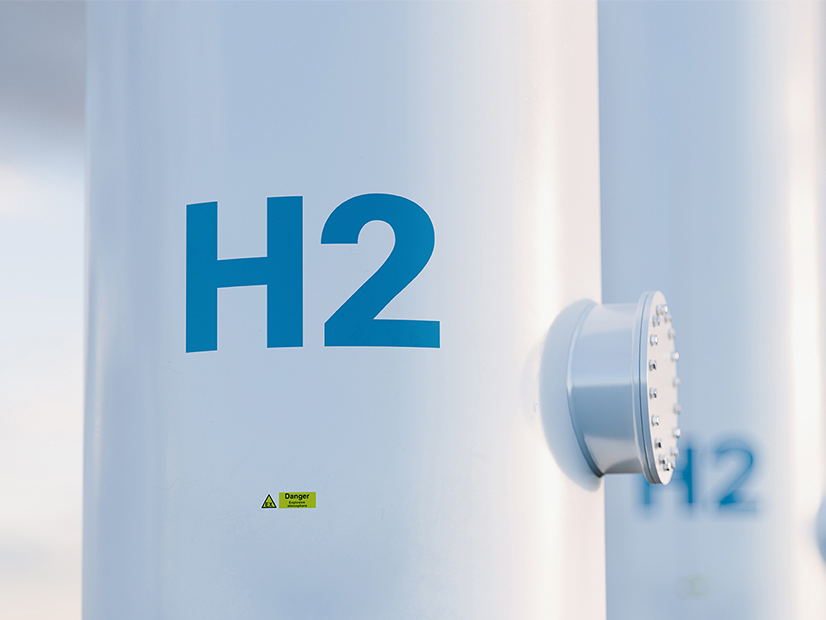As the California Energy Commission prepares to offer $100 million in incentives for clean hydrogen projects in the state, officials are seeking public feedback on the details of the upcoming solicitations.
The Clean Hydrogen Program has three main components, CEC staff said during a workshop on Dec. 1.
In the first piece, the CEC plans to offer $40 million for large-scale, centralized clean hydrogen production. The funds will target projects using existing technologies to produce hydrogen on a large scale — 5 metric tons a day or more — in the near term. Awards will range from $10 million to $20 million.
Another $30 million in funding will be available to projects in which hydrogen is produced and stored at a point-of-use. The CEC is looking for 1 to 5 metric tons of daily hydrogen production. This funding is aimed at earlier stage technologies. The awards would range from $4 million to $7.5 million.
And in a third component, $20 million would be available to hydrogen projects in need of matching funds for federal money, such as from the Infrastructure Investment and Jobs Act. In addition, another $10 million is set aside for technical assistance and administrative support, bringing the program total to $100 million.
As now proposed, funding for large-scale projects would be limited to those producing hydrogen through electrolysis powered by renewable resources. In contrast, the CEC would allow more flexibility in production methods for onsite hydrogen projects.
The solicitations are expected to be released next year, starting with the federal matching funds component. The CEC is accepting comments on design of the solicitations through Dec. 16 at 5 p.m.
Electrolysis Requirement Debated
The electrolysis requirement for large-scale projects was a topic of debate during the workshop.
“[I] don’t understand why the focus was put on electrolysis. That’s not the cost-effective way to produce green hydrogen,” said workshop participant Chris Headrick, founder and executive chairman of Texas-based H2 Energy Group. The company’s technology produces hydrogen through pyrolysis of woody biomass.
The Clean Hydrogen Program was created by this year’s Assembly Bill 209, and CEC staff said program requirements are based on what’s in the bill.
The bill says that hydrogen projects eligible for the program’s incentives must involve hydrogen “derived from water using eligible renewable energy resources,” or be “produced from these eligible renewable energy resources.”
“I don’t see anything in AB 209 that justifies limiting the larger export projects to electrolytic hydrogen only,” said Julia Levin, executive director of the Bioenergy Association of California. “And I would say it’s actually far more urgent to deal with our organic waste to meet the state’s short-lived climate pollutant requirements, the wildfire reduction requirements, etcetera.”
CEC staff noted that the current program requirements are proposals at this point, and the agency will take stakeholder feedback into account before finalizing them.
Another program requirement that raised questions was a proposal to ban petroleum refining as an end use in either the large-scale or onsite projects.
“Why limit the end use of hydrogen?” a workshop participant said in a chat comment. “If it is green and can replace fossil derived hydrogen, it is a step in the right direction.”
Costs, Emissions Considered
The CEC plans to evaluate project proposals based on factors including technological readiness, water usage and reduction in emissions of greenhouse gases and other pollution.
The agency will be looking for cost improvements as compared to the cost of hydrogen from steam reforming of fossil gas. Job benefits and community impacts will also be considered.
CEC staff described the clean hydrogen program as complementary to the Alliance for Renewable Clean Hydrogen Energy Systems, or ARCHES.
ARCHES is California’s public-private consortium aimed at accelerating the development and deployment of green H2 projects and infrastructure. The partnership is seeking a piece of the $8 billion in hydrogen hub funding being offered by the Department of Energy.
ARCHES is seeking proposals for hydrogen projects in California, with a deadline of Dec. 23.




